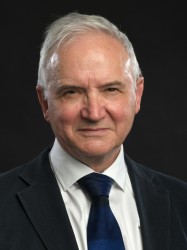BibTex format
@article{Cole:2017:10.1172/jci.insight.91868,
author = {Cole, SL and Dunning, J and Kok, WL and Benam, KH and Benlahrech, A and Repapi, E and Martinez, FO and Drumright, L and Powell, TJ and Bennett, M and Elderfield, R and Thomas, C and MOSAIC, investigators and Dong, T and McCauley, J and Liew, FY and Taylor, S and Zambon, M and Barclay, W and Cerundolo, V and Openshaw, PJ and McMichael, AJ and Ho, LP},
doi = {10.1172/jci.insight.91868},
journal = {JCI Insight},
title = {M1-like monocytes are a major immunological determinant of severity in previously healthy adults with life-threatening influenza.},
url = {http://dx.doi.org/10.1172/jci.insight.91868},
volume = {2},
year = {2017}
}

